Proud Boys and antifa: When a right-wing activist met a left-wing anti-fascist
- Published
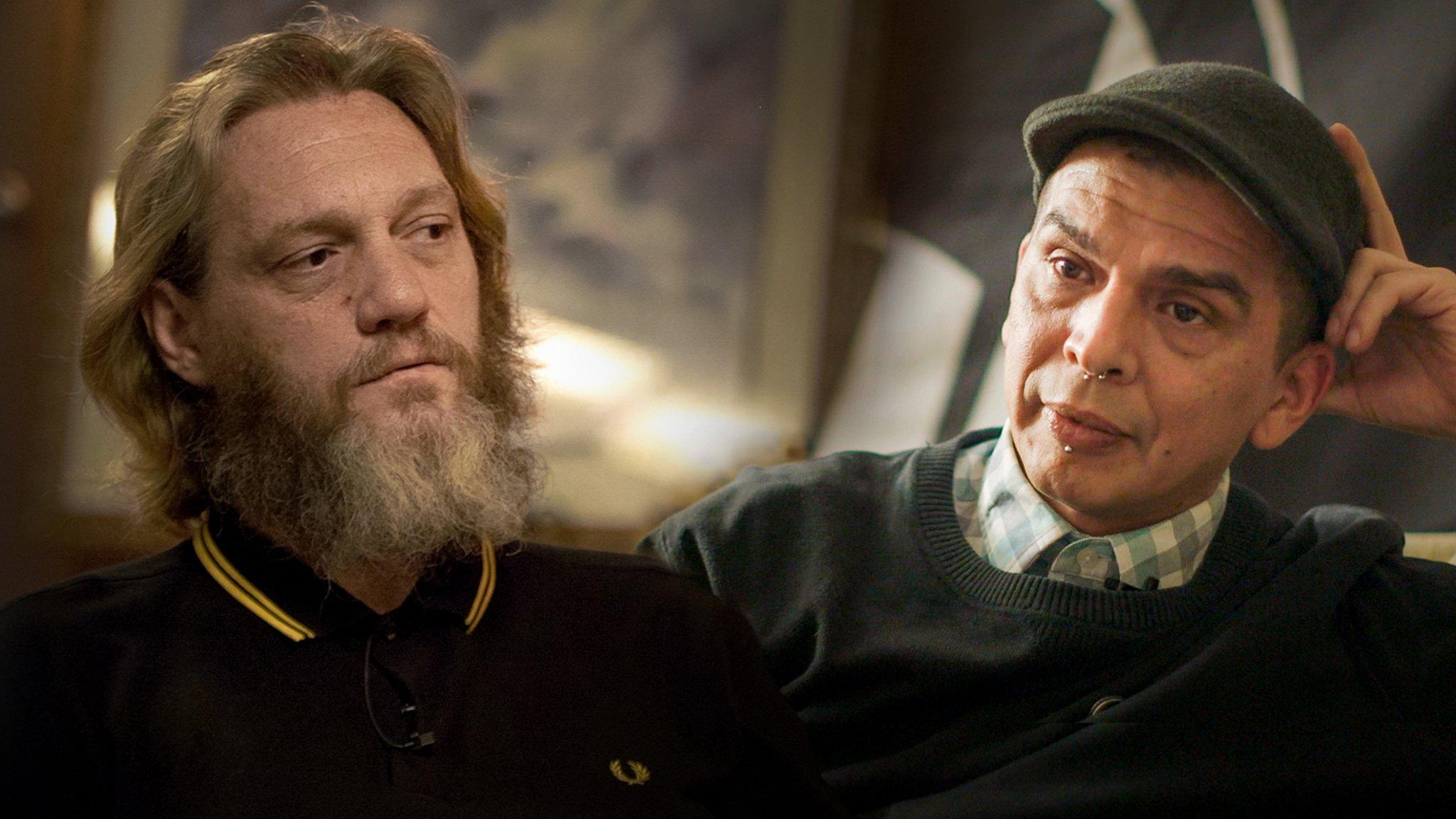
Proud Boy Rob Cantrall (left) and anti-fascist activist Luis Enrique Marquez
Since the election of Donald Trump, extreme right-wing groups and left-wing activists have battled on American streets. It's happened in New York, Berkeley, Charlottesville and elsewhere. But one liberal enclave might be the epicentre of the fighting: Portland, Oregon, a progressive city in the Pacific north-west.
Two activists who have been on opposite sides in the Portland clashes agreed to meet and talk. But would they have any common ground?
I didn't think they would both be in the same room, until they were both in the same room.
We had agreed to meet on neutral ground - a cannabis club in east Portland. Recreational use of weed is legal in Oregon, and one thing Luis and Rob have in common is that they think liberalising drug laws is a good idea.
Luis, nervous and on edge, enters wearing sunglasses and a hat. Rob is wide-eyed and, it seems, intent on at least a verbal confrontation.
These two men, separated by a wide table, are sworn enemies. They've met on the street, and online they've sent threats and abuse back and forth.
As part of the BBC's Crossing Divides season, we asked them to meet to see whether people at political extremes in the US could find any common ground.
But there's a possibility that the meeting could end in a brawl.
Three burly security guards watch over us as I read out the rules: "Number one, no violence."
Rob asks Luis to take off his sunglasses.
"I feel so much more like I'm interacting with you if I could see your eyes," he says.
Luis answers with a terse "no".
And it starts to go downhill from there.

Listen on Trending radio from the BBC World Service
Watch Our World: Portland's Battleground on BBC World TV
See the full conversation between Luis and Rob on BBC Trending's YouTube channel, external.

Hipsters and fighting
Luis and Rob are part of what has become a familiar scene in an unusual place. A city of 700,000 in the America's Pacific north-west, Portland has a reputation for progressive politics and chilled-out lifestyles. In some districts, less than 10% of voters cast a ballot for Donald Trump.
But ever since the 2016 election, Portland has also been a regular venue for some of the worst political violence that America has seen in decades.
Anarchist riots just after the 2016 election resulted in property damage and more than 100 arrests. Soon after, a far-right group called Patriot Prayer started repeatedly holding pro-Trump, pro-"free speech" marches.
When Patriot Prayer hits the streets, they're joined by the Proud Boys, a group that describes themselves as a fraternal organisation. Others, including the Southern Poverty Law Center (SPLC), call them a hate group, external.
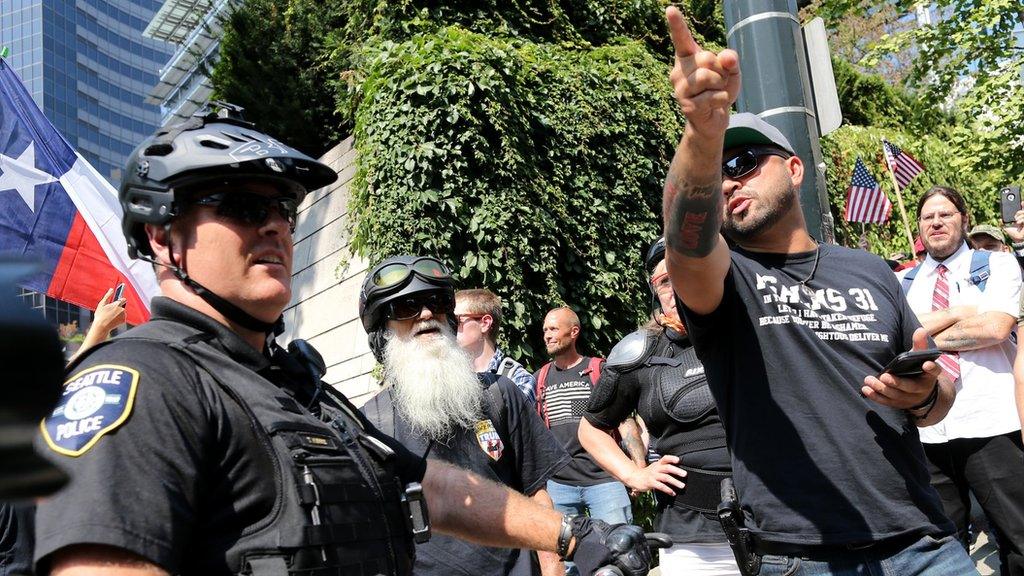
Joey Gibson (right) is the leader of the far-right Patriot Prayer group
The marches are met by counter protests, including a loose confederation of anti-fascists - or antifa, for short.
There is no one antifa organisation or political philosophy. They're a mixed bag of anarchists, socialists and communists. But what really makes them stand out from Portland's left-wing majority is their willingness to directly confront the right-wingers.
Over the past two years, the rallies and counter-demonstrations have repeatedly resulted in injuries, smashed windows, property damage, and arrests.
On both the far right and the far left, there are people who are not afraid of violence.
Allow X content?
This article contains content provided by X. We ask for your permission before anything is loaded, as they may be using cookies and other technologies. You may want to read X’s cookie policy, external and privacy policy, external before accepting. To view this content choose ‘accept and continue’.
Allow X content?
This article contains content provided by X. We ask for your permission before anything is loaded, as they may be using cookies and other technologies. You may want to read X’s cookie policy, external and privacy policy, external before accepting. To view this content choose ‘accept and continue’.
In a working-class neighbourhood in south-east Portland, American flags fly from houses and basketball hoops stand guard over pickup trucks.
One modest house on a side street looks a bit different. There are political signs: "We are all immigrants. We are all family." An anti-fascist banner hangs inside. There's also a hole where a brick has been thrown in the front window.
This is the home of antifa activist Luis Enrique Marquez. It also operates as a sort of community hub, with activists heading in and out through the day, chatting, smoking and planning.
Luis, who is in his mid-40s, is talkative and polite. The anti-fascists are also anti-hierarchy, but it's clear that many younger activists look up to him.
"My personal philosophy is that wherever fascism is, I'm going be there and I'm going confront it," he tells me.
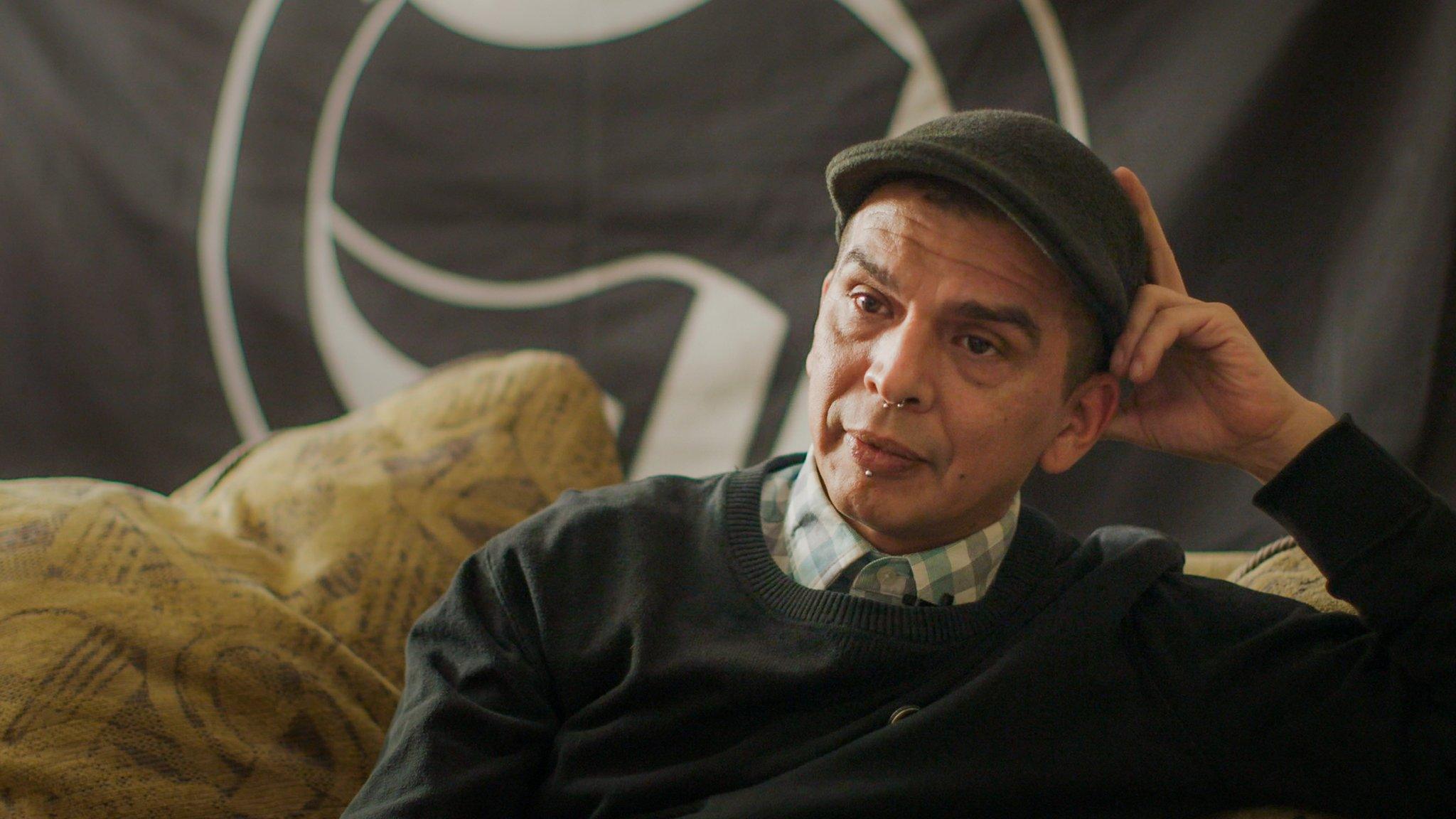
Luis Enrique Marquez
Luis has always been involved in Portland's punk, skinhead and anti-racist subcultures, but he dated his devotion to the antifa cause to Trump's election.
"I was angry," he says. "I wanted my voice heard that I didn't agree with this president."

You may also be interested in:

Luis and his fellow activists wish more of Portland's liberals would join them in the streets. As we talk, his comrades are prepare a mural: a cartoon version of Donald Trump as Humpty Dumpty, falling off a wall of his own creation. They plan to hang it over a busy highway.
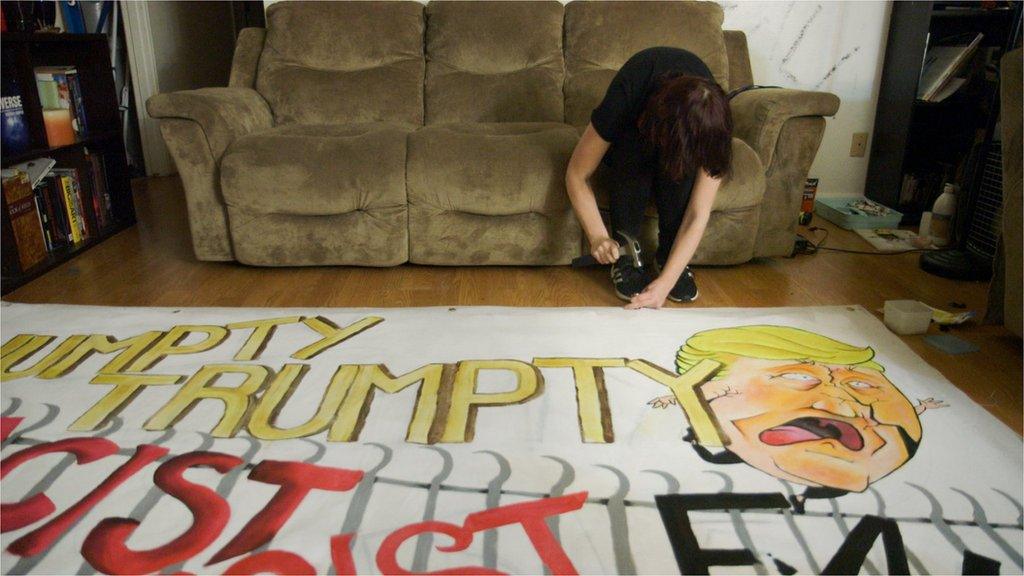
Anti-fascists work on a banner mocking Donald Trump
I ask Luis about a different kind of direct action. Why do they confront the far right - isn't fighting them in the streets giving them the attention they crave?
He thinks for a long moment.
"That's kind of like the marketplace of ideas argument, right?" he says. "That good ideas rise to the top and bad ideas go to the bottom? 'Let them say what they want, they're just a bunch of yahoos.'
"Words are dangerous," he argues. "Hitler didn't gas one single Jew, but his words gassed millions.
"So, if you come around me or my friends and you speak hatred, there's a consequence for your actions."
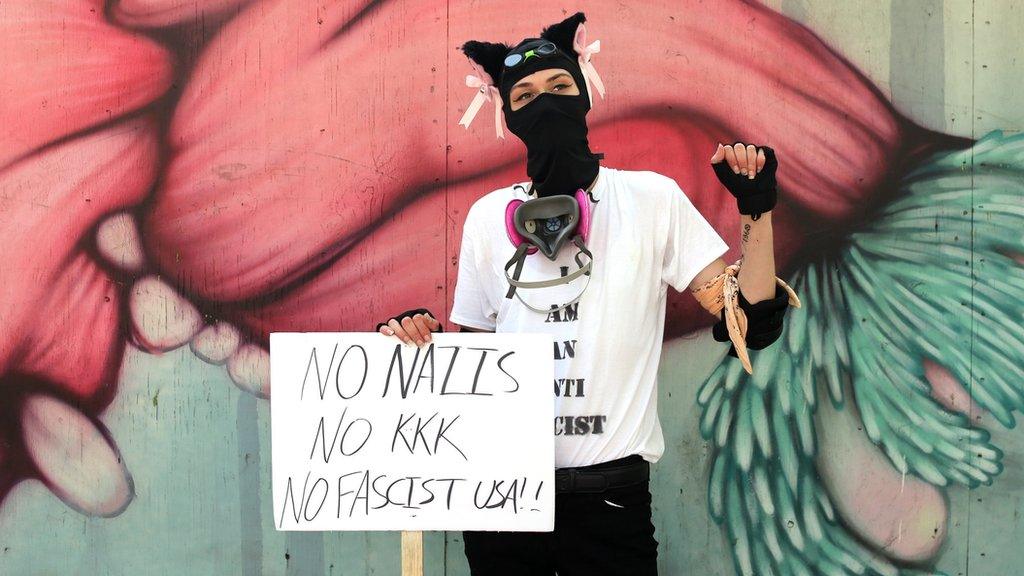
An anti-fascist activist at a Portland rally
The next day my crew and I drive five hours south, through mountains and thick forests of pine and Douglas fir trees, down to the bottom of Oregon.
There we meet up with Rob Cantrall, the head of a local chapter of the Proud Boys.
He's a big guy - tall, stocky and clearly someone you would not want to challenge in a fight. He's 46, but looks older. And he's wearing the Fred Perry polo shirt that the Proud Boys have adopted as their uniform.
Rob and the other Proud Boys insist they only fight in self-defence.
"One of the tenets is we're never supposed to hit first," he tells me. "Some guys like to fight. Some guys don't."
Rob is in the first category: "I get very violent in fights. I'm one of the more violent because I don't like to fight for very long, and I want to get it done... You're not there to look cool. You're there to suppress a threat."
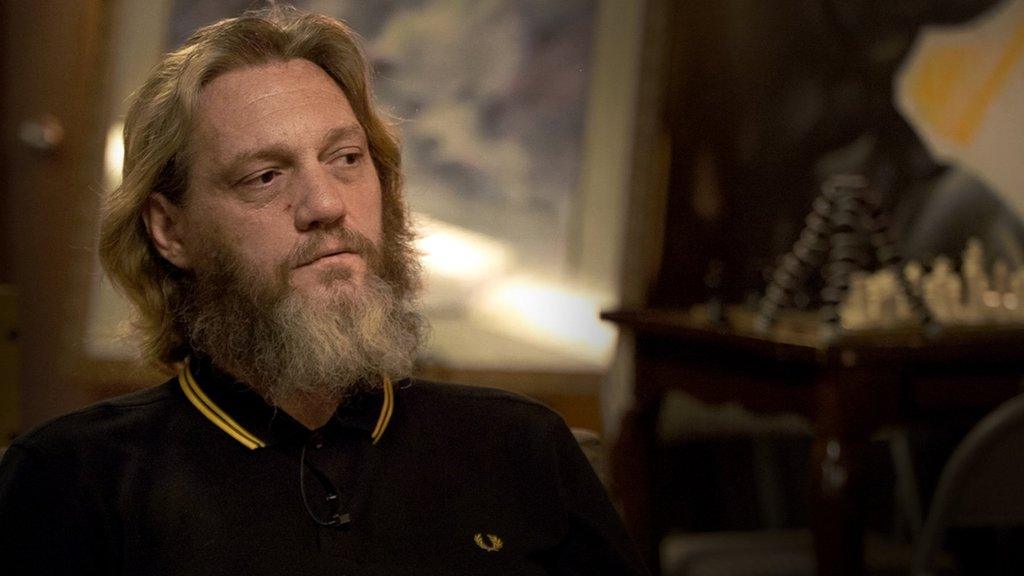
Proud Boy Rob Cantrall
There are dozens of Proud Boy branches across the US, as well as in the UK, Canada and elsewhere, although there's no central registry and an accurate estimate of the total number of members is hard to come by.
The group's existence was announced in 2016 by Gavin McInnes, a co-founder of Vice Magazine. Meetings, McInnes wrote, external, "usually consist of drinking, fighting, and reading aloud from Pat Buchanan's Death of the West".
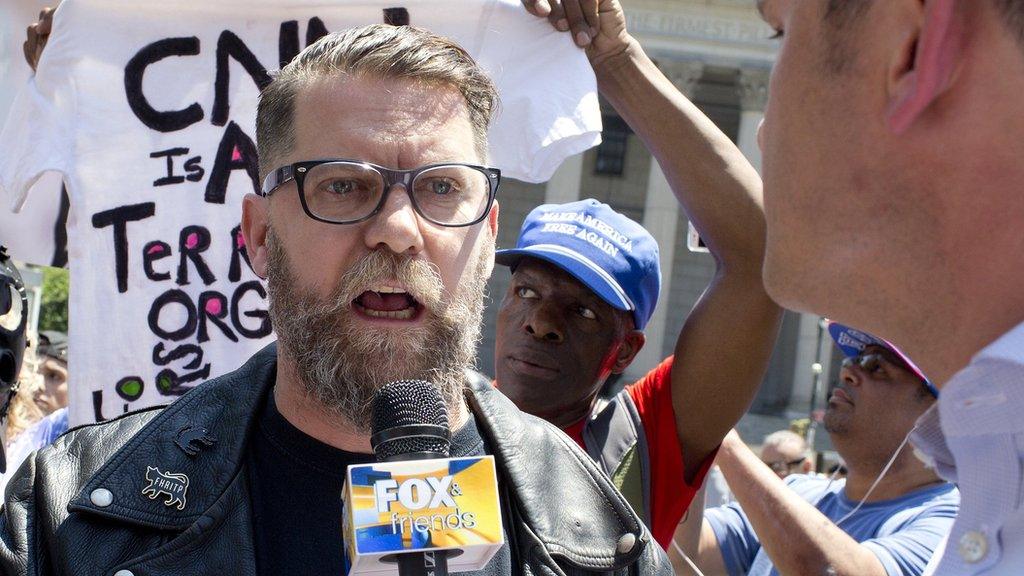
Proud Boy founder Gavin McInnes
The Proud Boy initiation rituals are both bizarre and overtly political. In order to be accepted into the first level of the group, men - the group is only open to biological males - must recite: "I am a Western chauvinist and I refuse to apologise for creating the modern world."
The second degree involves getting hit by fellow members while shouting out the names of five breakfast cereals, along with committing to avoid porn and masturbation - the group says they erode traditional relationships. To progress to the third degree, members get a Proud Boy tattoo.
There's also an honorary fourth degree. Various Proud Boys told me that it is bestowed for defending the group, fighting anti-fascists in the streets or getting arrested.
Rob is a third-degree Proud Boy. He credits the group with giving him confidence with women and a new sense of purpose. But it's also caused friction in his family.
"My mom gave me grief," he says, "my liberal brother gave me grief."
Rob shows me around the cannabis farm where he worked the previous summer, amid trees and rolling hills. But now that the harvest is over, he's scraping by on a monthly $900 disability cheque - even though the one of the stated goals of the Proud Boys is to end all welfare.
When we meet Rob's been sleeping in his car, with his cat, its litter box, and most of his other possessions.
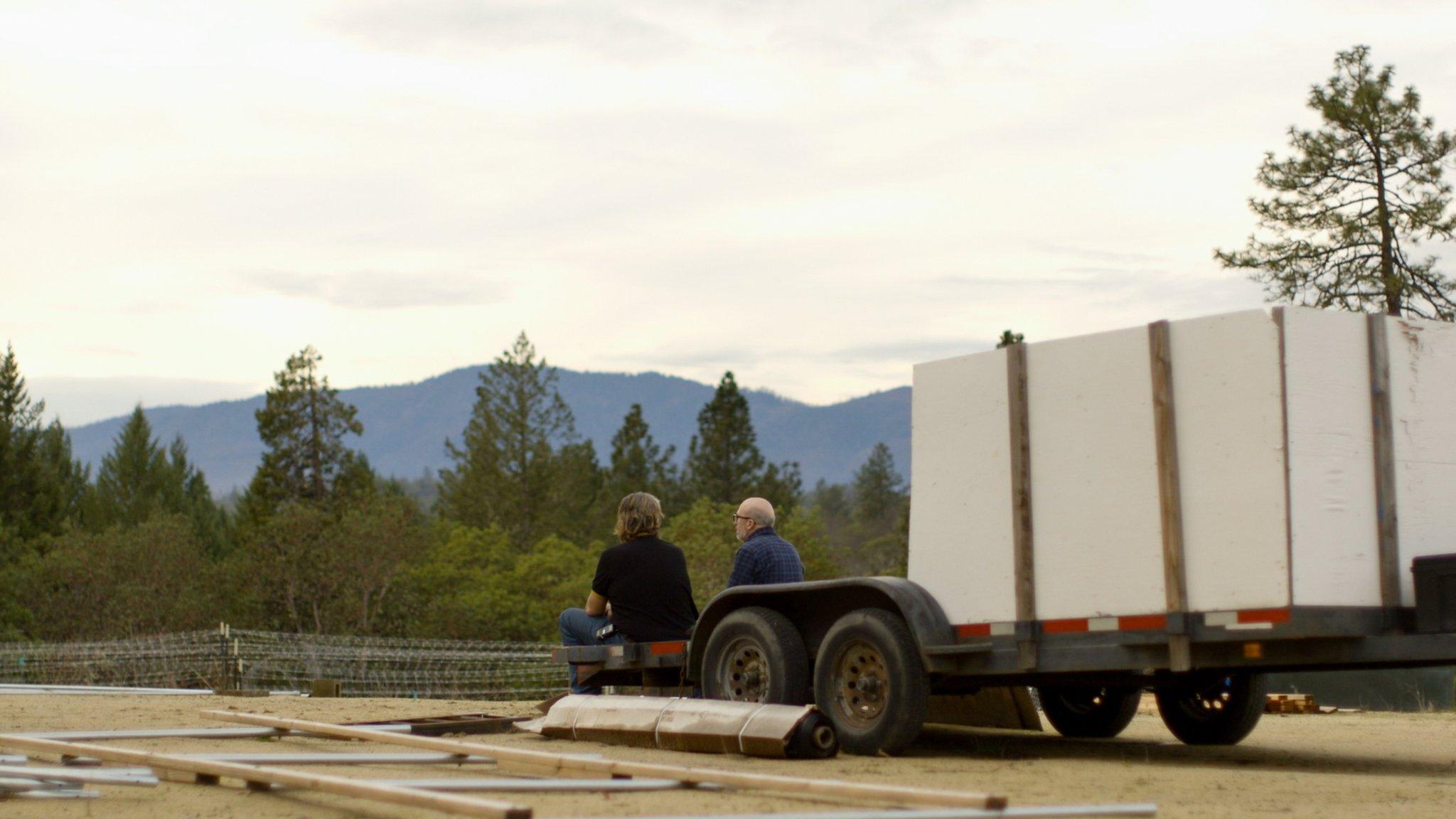
The marijuana farm in southern Oregon where Proud Boy Rob works
"We're trying to save the way of life that is freedom," he says, "and not let it turn into some oppressive commie nation."
Proud Boy principles combine Trumpian capitalism ("glorify the entrepreneur", "close the border") radical libertarianism ("give everyone a gun", "abolish prison", "end welfare") and support for traditional gender roles ("venerate the housewife").
They occupy an unusual space on the fringes of American right-wing politics. Recently their new national leader was seen sitting behind the president at a rally. They came out in force to support former Trump advisor Roger Stone. A former Proud Boy, Jason Kessler, organised the bloody United the Right march in Charlottesville in 2017.
Allow Instagram content?
This article contains content provided by Instagram. We ask for your permission before anything is loaded, as they may be using cookies and other technologies. You may want to read Meta’s Instagram cookie policy, external and privacy policy, external before accepting. To view this content choose ‘accept and continue’.
McInnes, the founder, has sued the SPLC over the hate group designation. But he also resigned from the Proud Boys after a brawl outside a Republican club in New York. Ten Proud Boys were arrested in that incident. Two have since been given short community service sentences after pleading guilty to disorderly conduct, and another six are awaiting sentencing on more serious charges including attempted assault and riot.
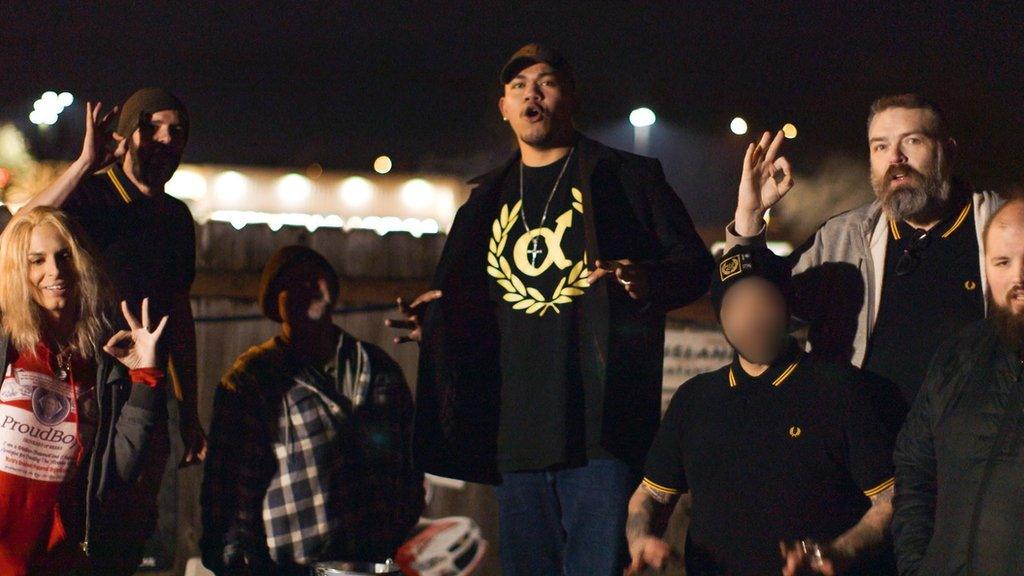
The Proud Boys gather at a bar just outside of Portland
Drinking and fighting
The Portland marches are organised by a group called Patriot Prayer, based in the suburb of Vancouver, Washington, just across the Colombia River. Vancouver is also home to a sizeable contingent of Proud Boys.
The Proud Boys are drinking at a sports bar where a karaoke night is in full swing. We step outside into the frigid air to chat, with most of the group wearing nothing more than their short-sleeve Fred Perry shirts.
They scoff at the notion that they are extremists, and insist they've been given a raw deal by the media.
"My dad's from Mexico," one of them tells me. The others point out minorities and gay men in the group. "It's so funny having a white antifa guy call me racist."
One of the Proud Boys is Tusitala "Tiny" Toese. Originally from American Samoa, his nickname is ironic - Tiny is enormous. He's also been arrested 18 times, on charges including assault, harassment and disorderly conduct.
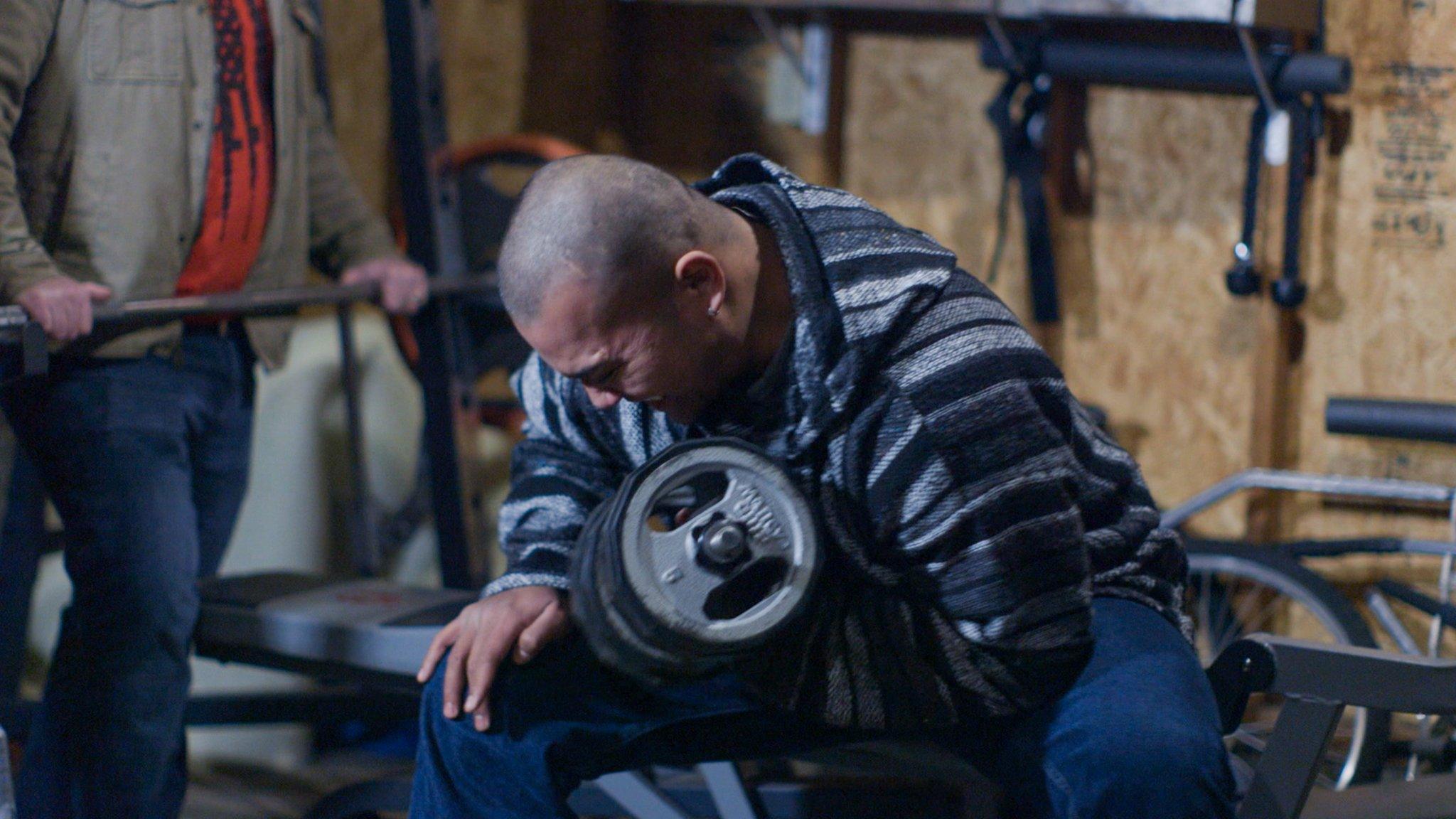
Tusitala "Tiny" Toese lifts weights during a Proud Boy gathering
"Most guys are just here for the drinking," Tiny tells me. He claims it's not race or gender that is causing the divisions - it's political beliefs.
"We got tired of people getting beat up," he says, "just because they have a different belief from the people who are running around with masks."
I put it to Tiny that what the anti-fascists want is pretty much the same thing - the right to be left alone to organise their anti-Trump political movements in peace.
"They're being selfish," he says. "Not everybody in Portland agrees with them. And if they're trying to build a community, it's a community of masked ninjas that does not follow the law."
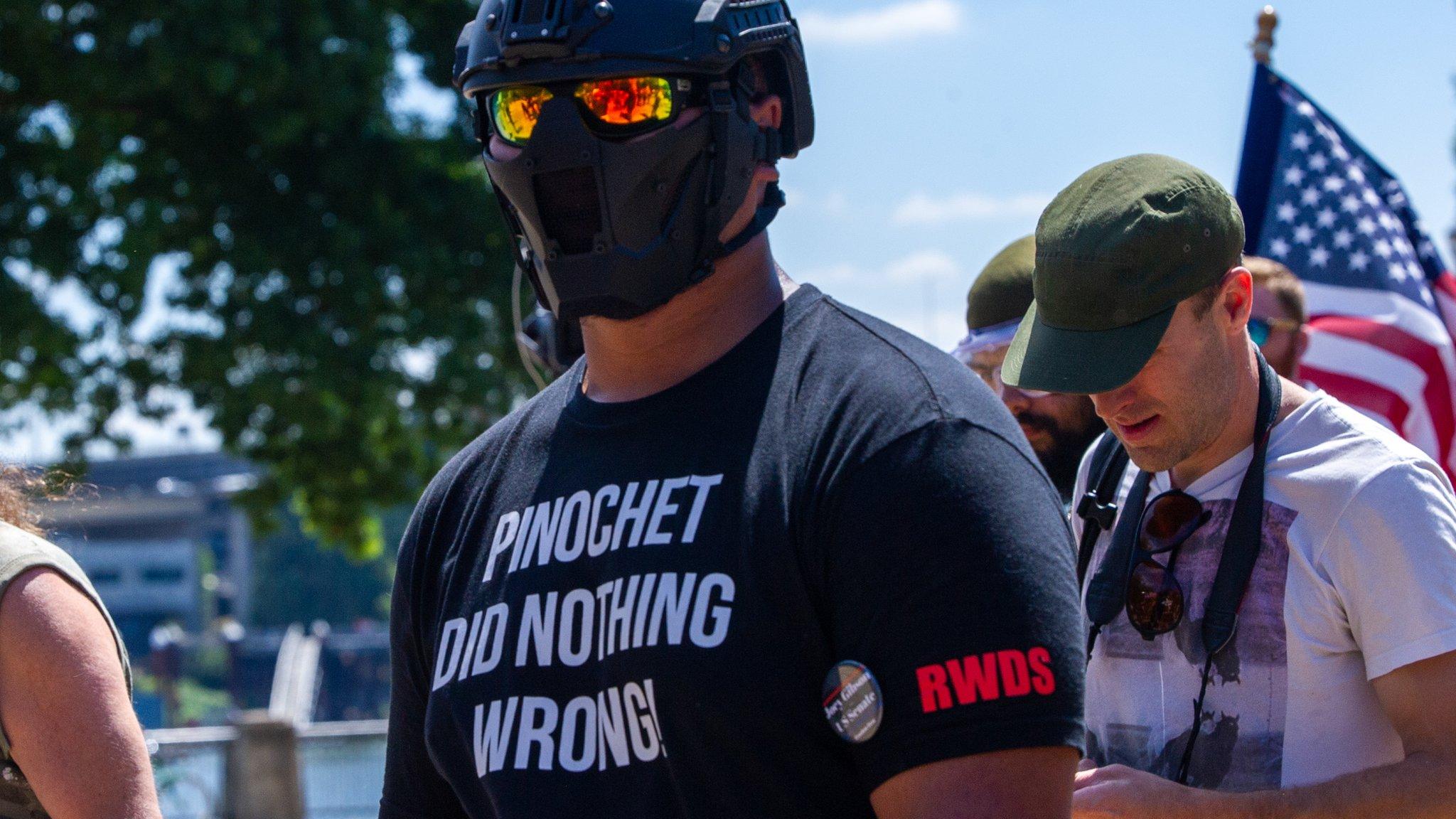
'Tiny' Toese at a Portland rally in 2018. 'RWDS' stands for 'Right wing death squad'
Blaming Trump
Most Portlanders abhor the right-wing marches, but many are critical of the anti-fascist tactics as well.
The city's mayor, Ted Wheeler, a Democrat, is clear about who he blames for the violence.
"Why are these things happening in Portland? In part, it's because we are a progressive community," he tells me. "Groups like Patriot Prayer and the Proud Boys... they come from the outside.
"They come here because they know that their message is not necessarily welcomed here. They're trying to provoke a reaction."
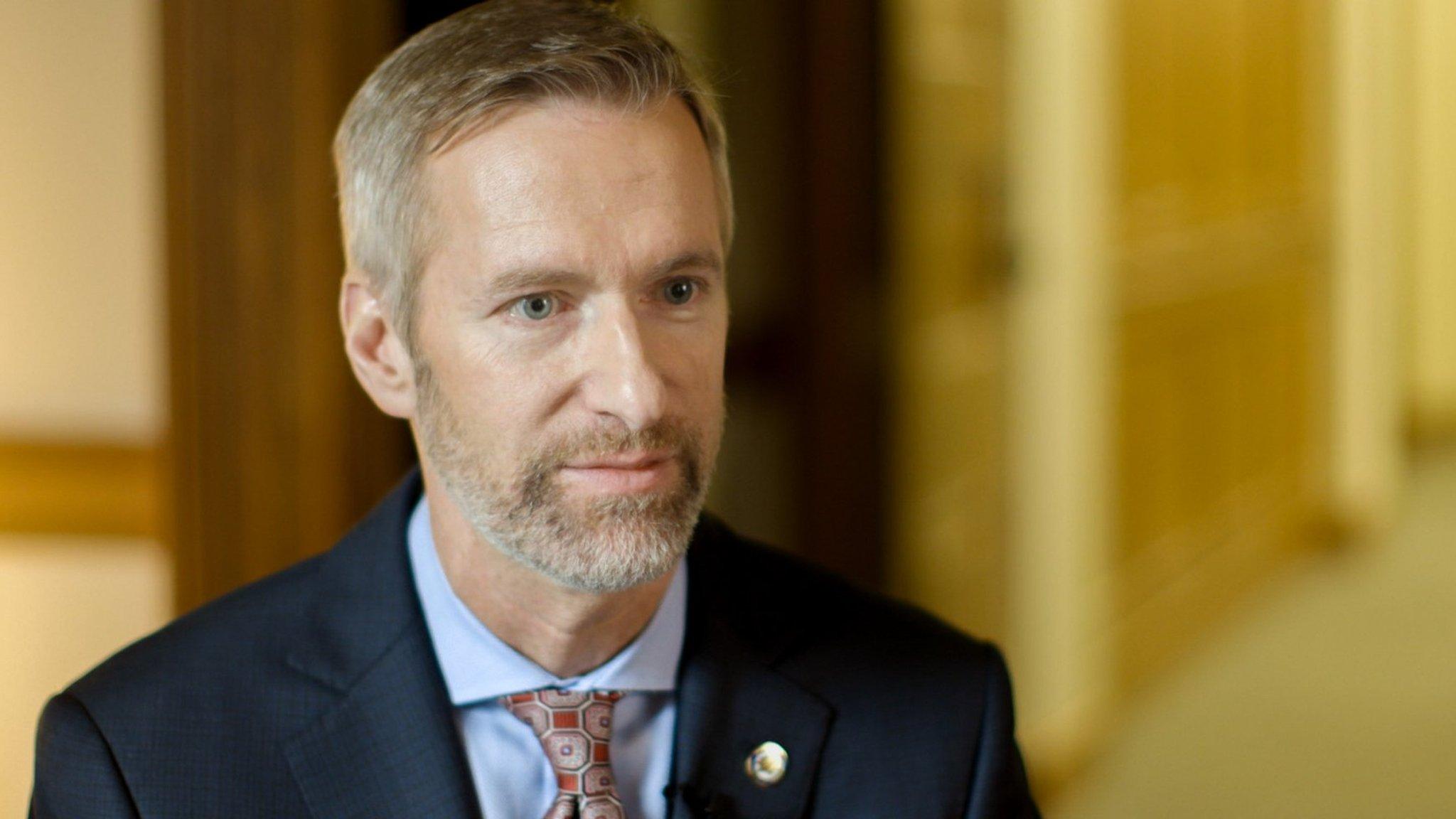
Portland mayor Ted Wheeler
He also blames President Trump.
"His failure to speak out against this, his failure to address white supremacy, has given licence to organisations that want to come here and express their hatred," he says.
"It's the job of the president to ensure the protection of liberty in the United States of America. And it is under attack."
Armed and ready
Neither the Proud Boys nor the anti-fascists trust the city authorities. The Proud Boys say police come down hard on their side, and allow antifa free rein. But anti-fascists allege the exact opposite.
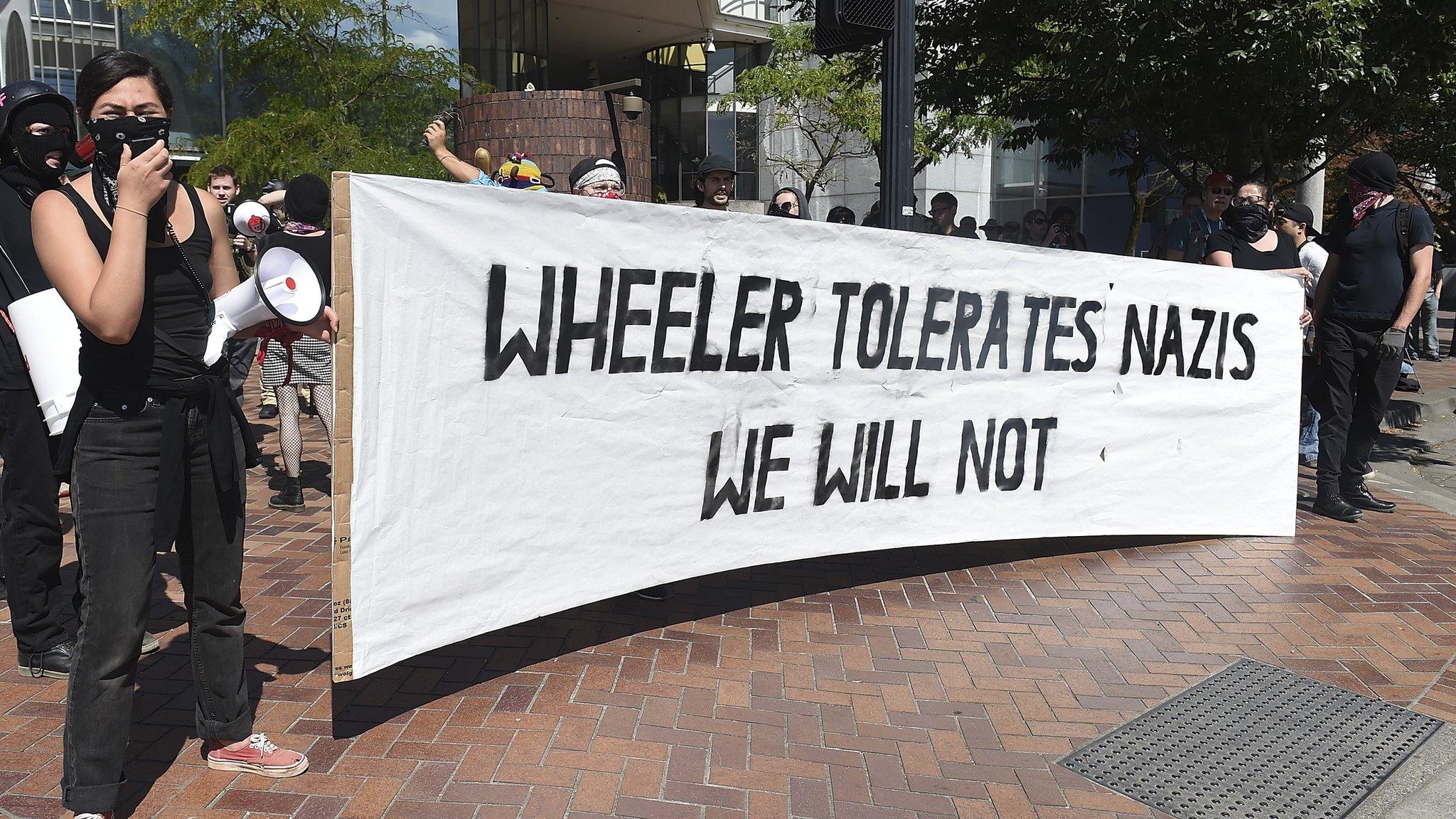
Anti-fascists accuse Mayor Wheeler and the police of being overly tolerant of right-wing extremists
During a protest in August 2018, a group of armed right-wingers was found on a nearby roof, with guns. They were allowed to go, police and the mayor say, because they were complying with Oregon's firearms laws.
In February, leaked messages indicated that a Portland police officer had an ongoing and chatty relationship with Patriot Prayer leader Joey Gibson. The authorities have promised a full investigation. Whatever the result, it's unlikely to mollify the anti-fascists, some of whom come to rallies armed.
In Luis's house, antifa activists are chatting over a dinner of Indian food. They dismiss the Proud Boy diversity as tokenism and call it a cover for an extreme ideology.
"They're supporting a president whose policies have real-life consequences for folks who they claim they accept," one activist tells me.
Luis says he's baffled at why the Proud Boys and Patriot Prayer hold rallies, if not to antagonise liberal and left-wing Portland.
"I'm not sure what right they've lost," he says. "Have guns been taken away? What they've lost is the right to yell the n-word."
Luis shows me threatening messages he's received from Rob Cantrall: "Don't let me catch you on the street" and "My dark side wants to see you bleed." There are much worse. Luis also gives as well as he gets. Once, he wrote back to Rob: "I prefer you to (commit) suicide. I don't fear you."
One of the anti-fascists, a military veteran, shows me the handgun she carries at all times.
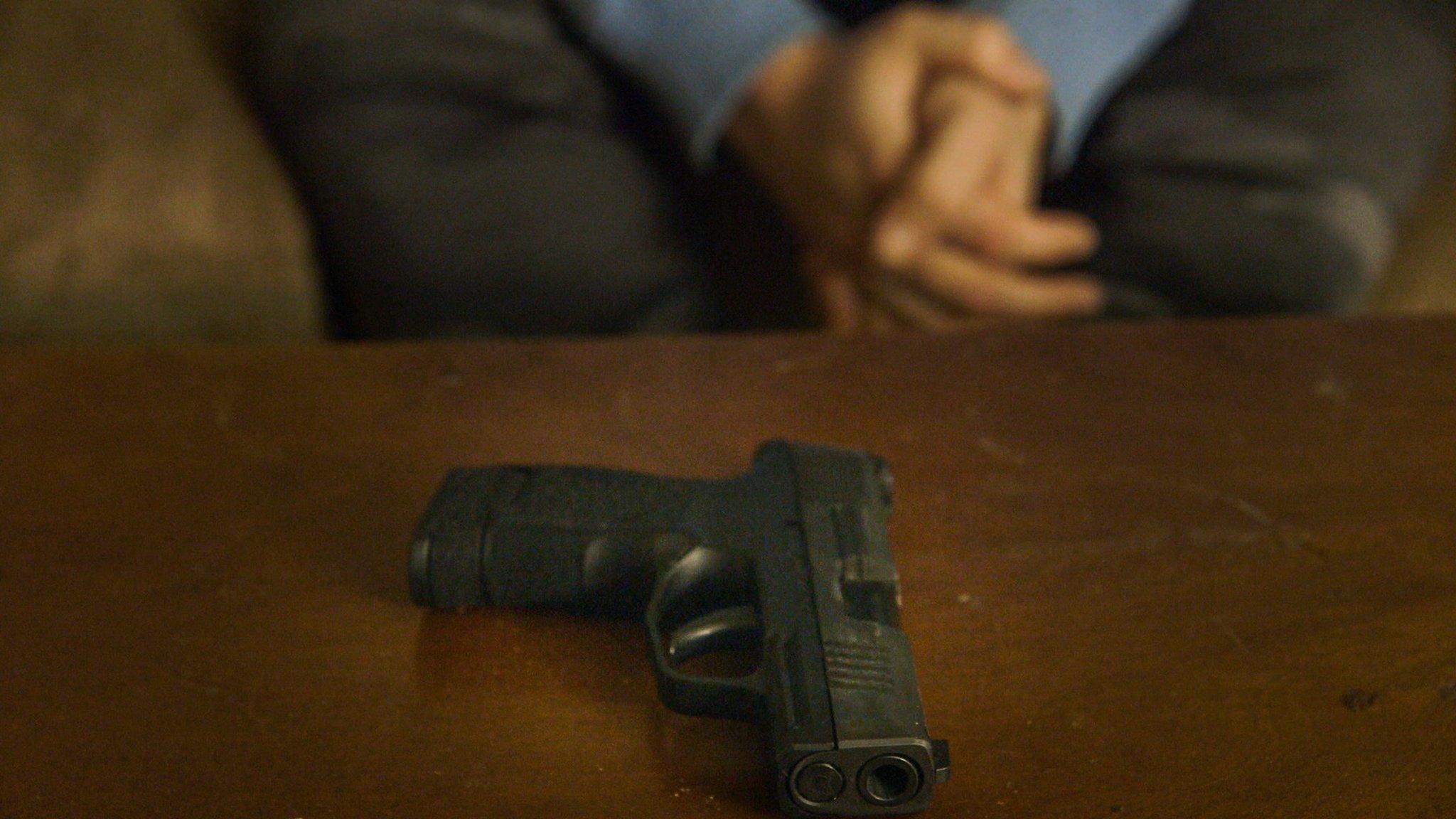
Some anti-fascist activists routinely carry weapons
"I really don't like guns, honestly," she says, "When I got out of the military, I had gotten rid of every weapon I had."
The veteran, who spoke on condition of anonymity because she fears for her safety, is transgender as well as an anti-fascist. That, she says, makes her doubly a far-right target.
"The last time I was assaulted, I beat my attacker physically without shooting him," she tells me. "And I have to say that I feel like that's a level of restraint that the police would not have."
Distrusting the police
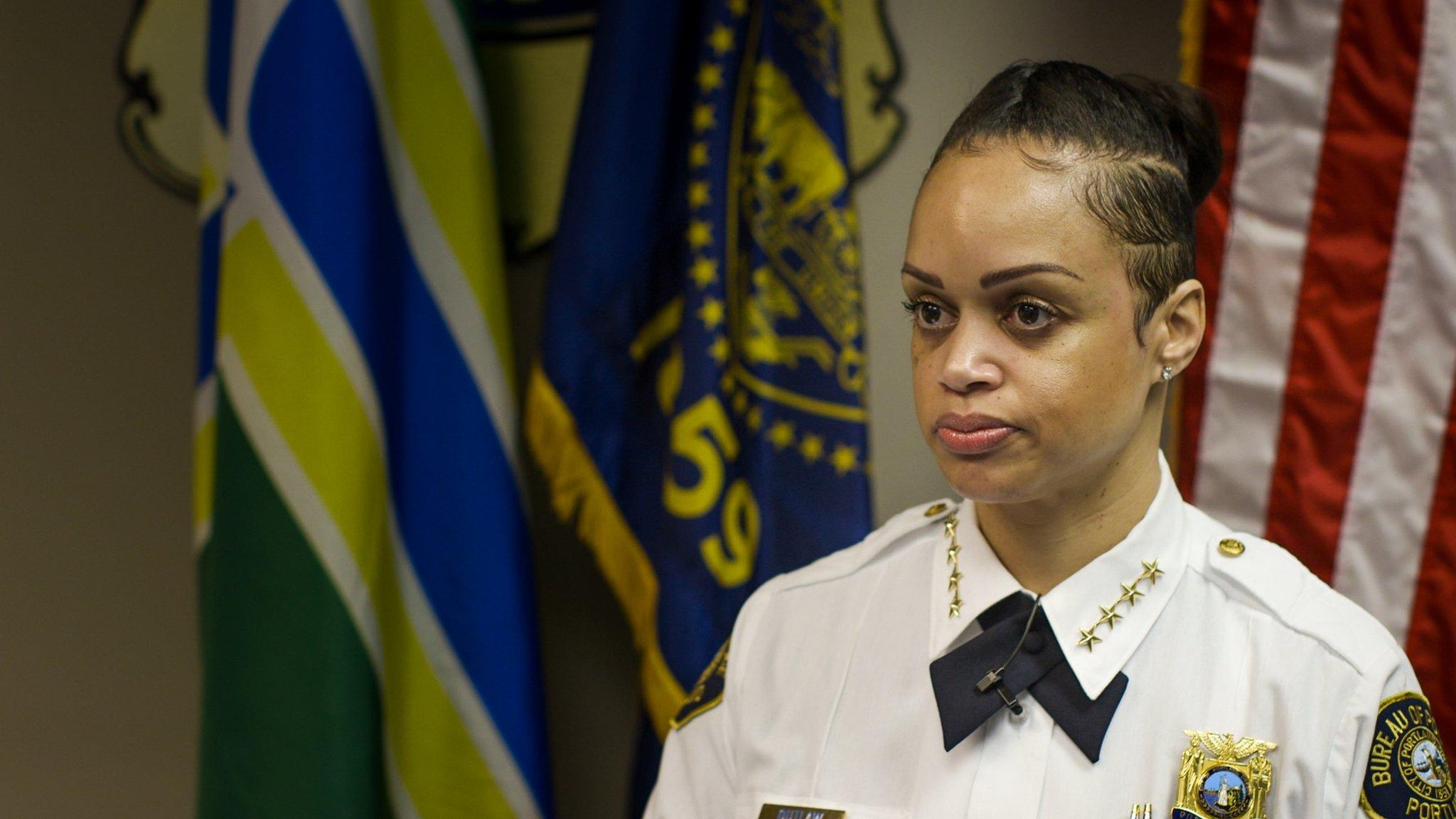
Portland Police Chief Danielle Outlaw
Portland Police Chief Danielle Outlaw - she gives a smile when I bring up the irony of her name - says that her officers have a difficult job. They have to protect freedom of expression, as well as ensure public safety. And the law means they have to act reactively, even if groups with known history of violence gather.
"We have to facilitate and allow people to exercise their first amendment right to free speech," she says. "We're not allowed to shut something down before it happens."
"Given social media now, we don't always have the opportunity or the luxury of getting ahead of things," she tells me. "Someone can say 'I'm going to go out downtown and I'm going to demonstrate.' And within 15 minutes, there can be whole crowd of people here and we're backpedalling."
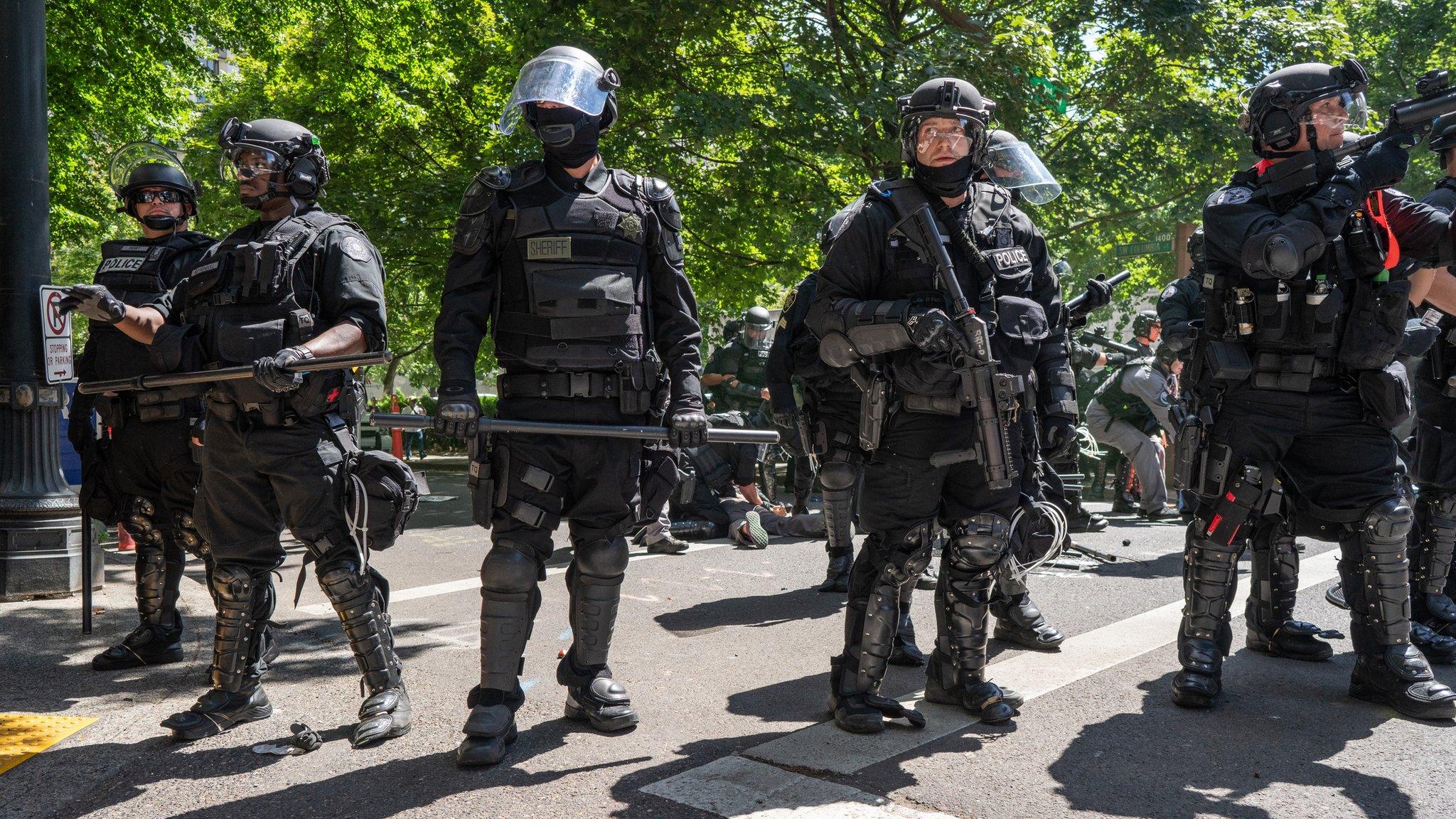
Outlaw, like many Portlanders, is a transplant from a bigger city - she was deputy chief in Oakland, California, before becoming the first African-American woman to lead Portland's force in 2017.
"I get people saying 'Chief Outlaw, whose side are you on? What are little black girls going to think of you for protecting white supremacists?'
"If we start making moral judgements, it's a slippery slope."
Allow X content?
This article contains content provided by X. We ask for your permission before anything is loaded, as they may be using cookies and other technologies. You may want to read X’s cookie policy, external and privacy policy, external before accepting. To view this content choose ‘accept and continue’.
But the chief's words don't assuage Luis and his comrades. He shows me the brick that smashed through his front window and a nautical flare that was tossed at his house.
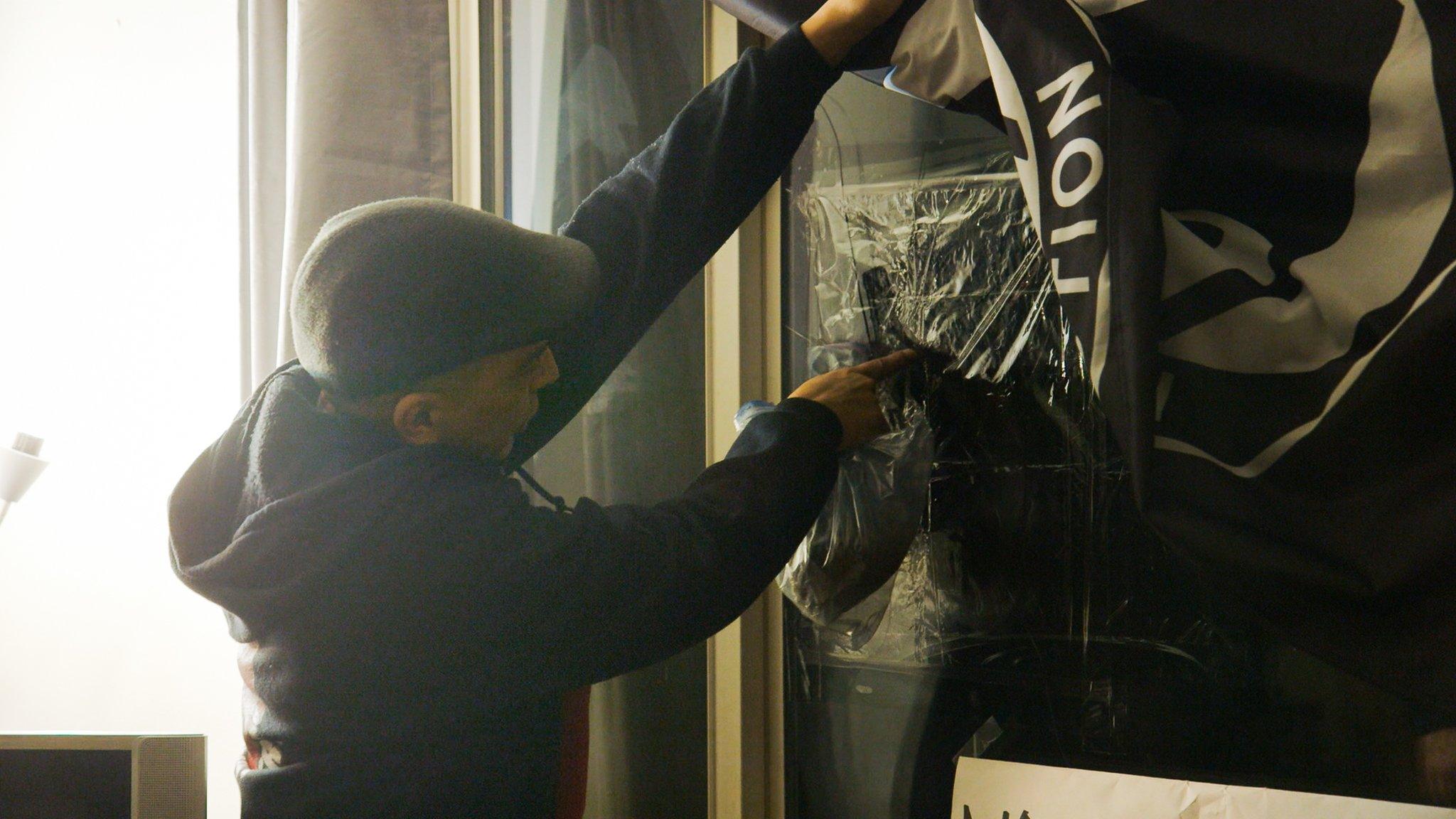
Luis shows the hole in his front window
"Did the police ever find out who was responsible?" I ask.
Luis looks at me with disbelief.
"I don't call the police," he says.
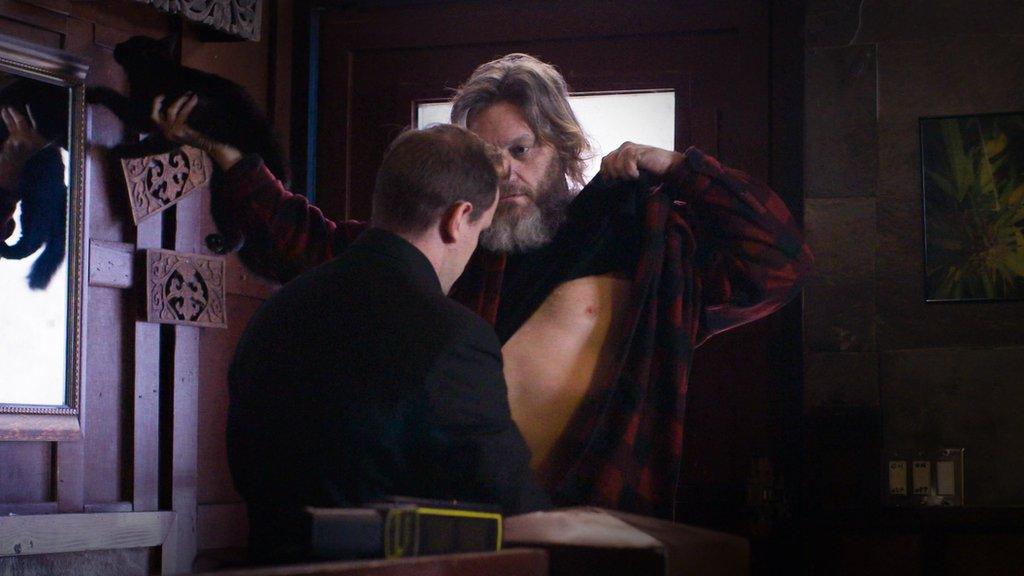
Rob gets searched for weapons - along with his cat
The meeting
Getting Rob and Luis to meet took months of careful negotiation. We agreed to hold the discussion at the North West Cannabis Club, a smoking den on the east side of the city. Weed is legal in Portland and the rest of Oregon.
As they arrive, the security guards search them for weapons. After the tense beginning - and Luis's refusal to take off his glasses - I begin by asking them what they think of each other.
"I think he's a bigot," Luis says of Rob. "I think he's a misogynist. I think he's violent towards women. I think he's a racist, I think he's uneducated and I think he's misguided."
Rob bristles.
"He's obviously ignorant of who I am," he responds. "I think he's violent on the street. I think he's trying to duck out of responsibility."
"That's funny," Luis retorts. "I'm not the one that's been caught on video camera threatening to punch women in the face."
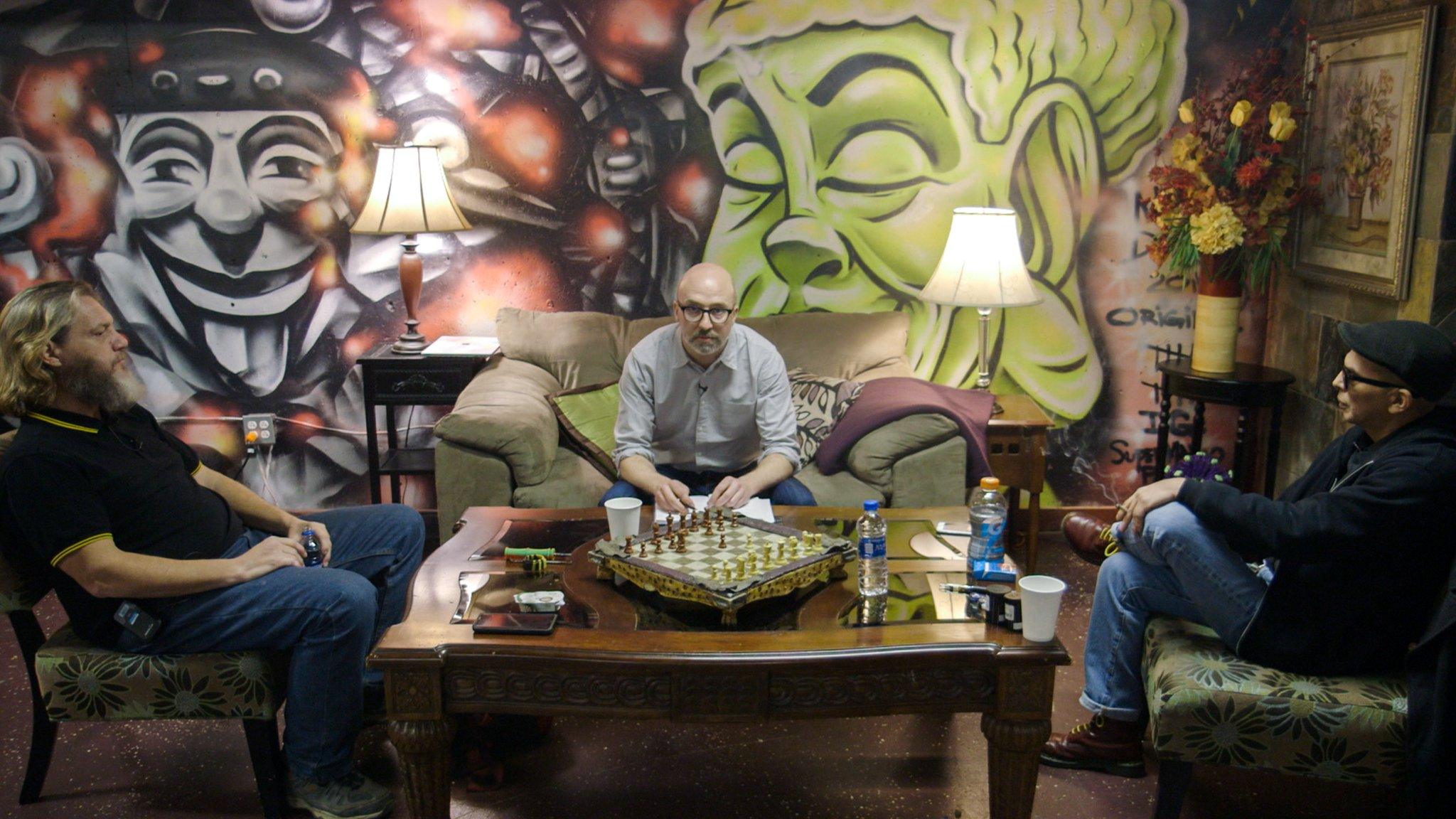
I show them video clips of their own threatening behaviour - first Rob, who threatened to burn down a communist bookstore.
"I'm so justified in telling those fools I was going to burn down their bookstore," he contends. "It's not illegal, is it?"
I gently suggest that it might be illegal to burn down a bookstore. Rob is unrepentant.
I turn to Luis and show him a clip. He's getting in the face of a right-wing protester. His response to the video is surprising.
"That march turned into a personal feud between me and a right-wing journalist and that in no way is right," he admits. "It was in no way correct."
Rob is momentarily impressed.
"Takes a big man say something like that," he says.
'How does it end?'
It seems like a glimmer of a breakthrough. but throughout the hour-plus conversation there are few areas of agreement. (You can see for yourself; we've put the conversation on YouTube, external - it contains strong language, violence and drug use.)
As the conversation progresses, Rob starts to smoke high-strength cannabis oil and Luis tokes on a joint. But the mood rarely changes.
I put it to them that they're both distrustful of the police and America's prison system. Both describe themselves as anarchists. But Luis immediately rejects the comparison. He points out that despite their professed libertarianism and anger at the police in Portland, many Proud Boys are supportive of law enforcement in general. Some use the pro-police "blue lives matter" slogan.
"You can't say that you are anti-prison yet stand with people who declare that 'blue lives matter,'" Luis says.
"I think we can still fix the police," Rob counters. "I say if you can't fix the police, then fire the police and get some new dogs in."
Most people in Portland would tell both of them to go to hell, I remind them. Do they care?
"Absolutely," says Luis. "But the violence only comes from one side." Rob disagrees, but also says he "doesn't care" what the people of Portland think.
One last question: how does this all end?
Luis talks about the big picture and his general political beliefs: anti-racism, a national education policy, universal health care, justice for Native Americans. When it comes to Portland and the Proud Boys, he's terse and clear.
"Proud Boys have been told. Burn your (Fred) Perry. Make a video renouncing hate and the Proud Boys. Go away," he says. "That's how it ends."
Rob is incredulous.
"You want us to just walk off a cliff?"
How does he see the conflict in Portland ending?
One word: "Badly."
Fighting continues
There is no meeting of minds. I wonder if the discussion might actually have made Rob and Luis even more angry at each other. But at least it goes off without any objects or punches thrown.
We drive Rob to his temporary home - his car in a nearby grocery store parking lot. He promises to wait and sober up before driving south. Before we say goodbye he starts live-streaming on his Facebook page. A few dozen people watch. Only a handful comment.
Later that night the anti-fascists hoist the Trump-as-Humpty Dumpty banner over a highway in a nearby suburb, strategically placed to catch the eye of morning commuters.
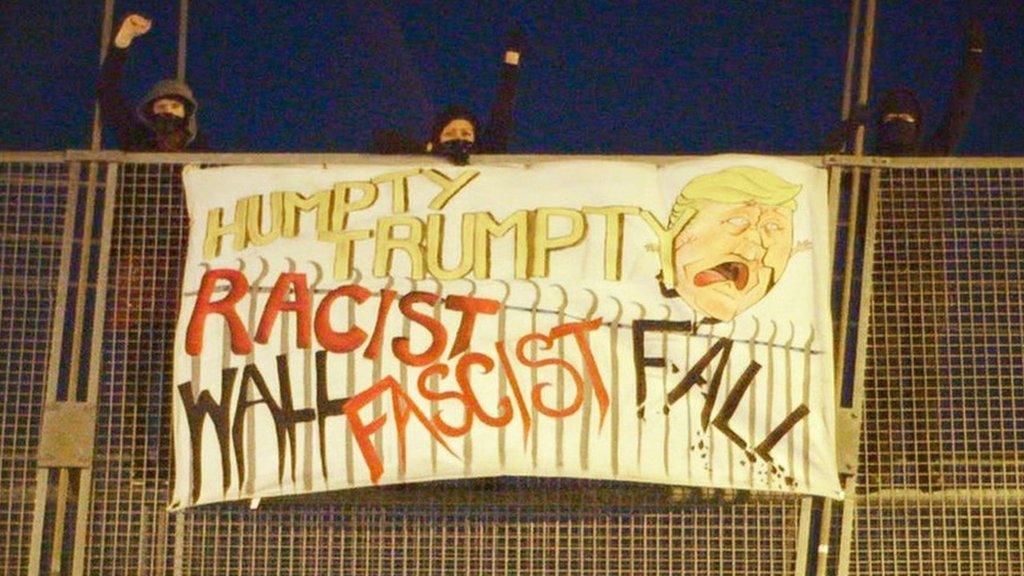
"It sometimes lasts though the night," one activist tells me. "It depends on how bored or busy the police are."
I left Portland the next day, but it wasn't long before there was more news from the city. A union hall had been vandalised. Someone had scrawled "ANTIFA HOUSE" on the side.
Rob and Luis weren't involved. But again activists came out onto the streets.
And again there were fights, between anti-fascists and Proud Boys.
Allow X content?
This article contains content provided by X. We ask for your permission before anything is loaded, as they may be using cookies and other technologies. You may want to read X’s cookie policy, external and privacy policy, external before accepting. To view this content choose ‘accept and continue’.
Have a story for us? Email BBC Trending , external
You can follow BBC Trending on Twitter @BBCtrending, external, and find us on Facebook, external. All our stories are at bbc.com/trending.

BBC Crossing Divides
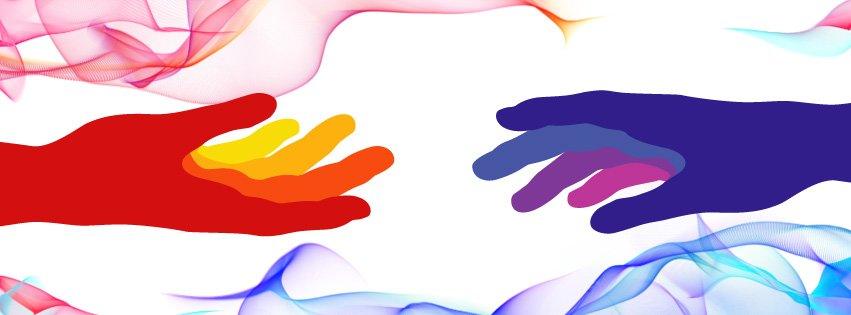
A season of stories about bringing people together in a fragmented world.
